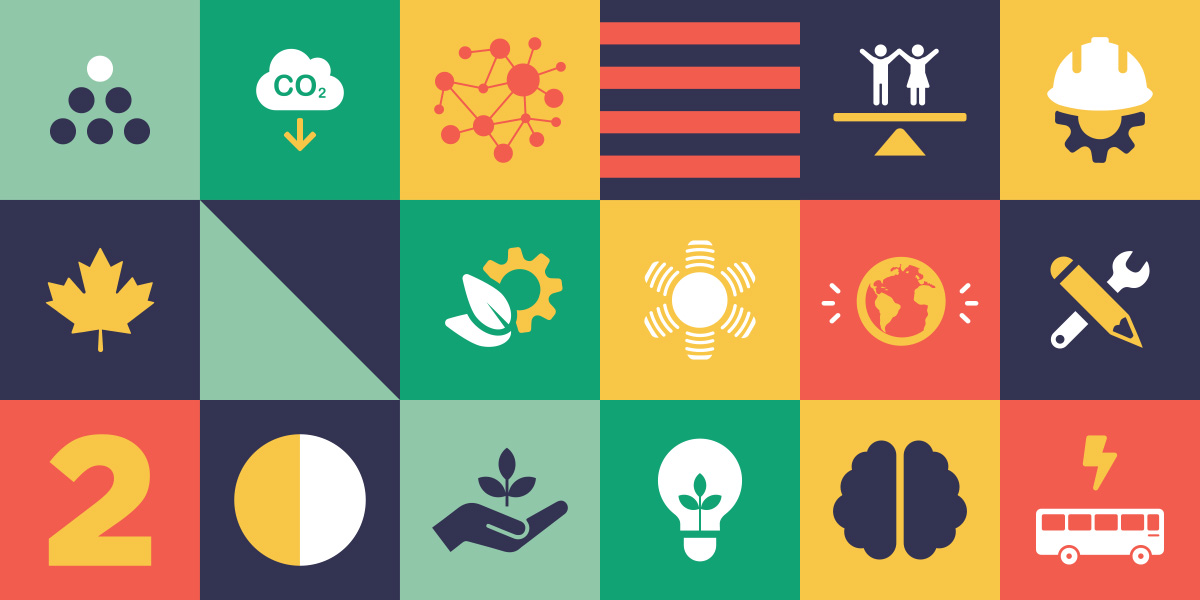Welcome to 2020. Seminal works of science fiction from the 19th and 20th centuries predicted the year 2020 in various ways, sometimes fundamentally different from the world we know, and sometimes merely an imaginable reality augmented by new technologies.
While their visions haven’t been fully realized, much of the technology is already here. We can 3-D print everyday objects, robots are now routinely performing tasks identified as too dangerous or time-consuming for humans, the underwater world is being mapped with optical and acoustic remote-sensing technologies, and scientists can detect radio signals emerging from distant parts of the universe.
The United Nations has set a 2030 Agenda for Sustainable Development to direct how we can use these technologies, along with collective action, for the good of the planet and humanity in the next ten years. Without letting our imaginations run too wild, here’s our optimistic vision for the coming decade:
- Following the development of a national framework to integrate principles of climate change adaptation and mitigation into postsecondary education, all students will graduate with a climate credential.
- All workers displaced by automation will be fully reintegrated into the workforce thanks to reskilling and upskilling programs; micro-credentials; and part-time, online, hybrid, and accelerated programs.
- With expanded wraparound supports for Indigenous students and curriculum supporting truth and reconciliation, Indigenous and non-Indigenous post-secondary attainment rates and labour market outcomes will be on par.
- Businesses and government will fully recognize the college and institute research and innovation capacity to offer solutions to pressing real-world problems.
- In line with the Government of Canada’s goal to be completely carbon neutral by 2050, sustainable cities and communities of the future will only offer carbon-neutral public transportation, including infrastructure to support the use and recharging of electric vehicles on campus.
- Buildings, classrooms, and research facilities on campus will all be constructed from recycled or recyclable resources, reducing garbage production, and retrofit to ensure energy efficiency to become net-zero.
- All post-secondary students will have opportunities to learn and develop global and intercultural skills through educational and work experiences abroad.
- As Canadian institutions welcome international students in increasing numbers year after year, expanded welcome and orientation programs, language training, and integration support will ensure the success and integration of all international students.
- As warming climates continue to cause geographic shifts, many inland and northern colleges and institutes will emerge as leaders in unexpected areas such as marine research, agriculture, and freshwater and natural resource management.
- With the help of on-campus student entrepreneurship incubators, young people will have the resources they need to step up to their innovation potential and launch small businesses in line with their own values systems for sustainable design.
- Small and medium-sized enterprises will benefit from the college and institute system – a Canada-wide research and development engine – to become internationally competitive.
- As mental health is recognized as a fundamental component of good health and wellbeing through initiatives such as Bell Let’s Talk and the Mental Health Commission of Canada’s new national standard on mental health for students, all post-secondary institutions will be equipped with the necessary individualized mental health support services to ensure student success.
- All employers will get on board with lifelong learning opportunities for employees, matching government incentives, providing tuition reimbursement programs, and allowing employees time for professional and personal development.
- All Canadians will have access to high-speed Internet service and the 5G network, no matter where they live, including universal broadband access for rural, remote, and northern communities.
- Work-integrated learning in all programs will give every student the hands-on technical and entrepreneurial skills they need to satisfy employer demand upon entering the workforce.
- Specialized programs will be accessible and affordable anywhere in Canada regardless of geographic location thanks to high-quality simulation, augmented and virtual reality, and open educational resources.
- All learners, including students from underrepresented populations, women, LGBTQ2S+ students, and students with disabilities will be able to pursue post-secondary education without facing physical, emotional, financial, or psychological barriers.
- As robots, drones, and other automated processes perform everyday tasks, we will have more time to direct towards innovation and global problem solving.
- Canadians will age comfortably and securely thanks to college and institute training and applied research in seniors care, aging, and gerontology.
- Hands-on technical and vocational education and training (TVET) all over the world will be completely destigmatized, and diploma, degree, and certificate programs and credentials will be recognized by employers as “top quality education”.
The start of a new decade is a good time to reflect on how far we’ve come and where we are going. By setting the right goals, working together to develop new solutions, and investing in the right infrastructure and skills, there’s no telling how far we can go.

